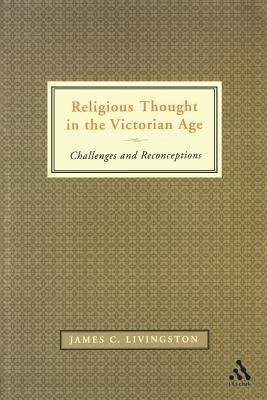
- We will send in 10–14 business days.
- Author: James C Livingston
- Publisher: Bloomsbury Publishing PLC
- ISBN-10: 0567026469
- ISBN-13: 9780567026460
- Format: 16.6 x 22.7 x 2 cm, softcover
- Language: English
- SAVE -10% with code: EXTRA
Reviews
Description
The central purpose of this book is to offer an account of crucial intellectual challenges to traditional British theology, challenges that provoked wide-ranging discussions and decisively shaped British theology. In several instances, they resulted in rather fundamental reconceptions of traditional doctrine and belief. Not all of the conclusions reached in these debates proved enduring, and some efforts to accomodate theology to advances in the sciences proved spurious or unnecessary. Yet even the ill-fated forays and speculations were efforts to respond to new, genuine questions that required answers.
Livingston, the dean of Victorian religious history, approaches this subject from a new perspective. By 1860, the religious discussion in Britain had broadened signficantly in two ways. First, the examination of critical theological issues had moved outside the bounds of the established Church of England and its three dominant parties. The discussion now engaged highly respected Roman Catholic, Nonconformist, and secular thinkers of impressive range. Second, the deeper and more consequential debates on matters touching on religion were no longer dominated by clerics and theologians. Livingston demonstrates that the late Victorian decades were a time of vitality and creativity in the educated public's discussion of critical religious and theological matters. Livingston reconceptualizes British religious thought in the last decades of the nineteenth century and the first decade of the twentieth.
EXTRA 10 % discount with code: EXTRA
The promotion ends in 19d.19:40:06
The discount code is valid when purchasing from 10 €. Discounts do not stack.
- Author: James C Livingston
- Publisher: Bloomsbury Publishing PLC
- ISBN-10: 0567026469
- ISBN-13: 9780567026460
- Format: 16.6 x 22.7 x 2 cm, softcover
- Language: English English
The central purpose of this book is to offer an account of crucial intellectual challenges to traditional British theology, challenges that provoked wide-ranging discussions and decisively shaped British theology. In several instances, they resulted in rather fundamental reconceptions of traditional doctrine and belief. Not all of the conclusions reached in these debates proved enduring, and some efforts to accomodate theology to advances in the sciences proved spurious or unnecessary. Yet even the ill-fated forays and speculations were efforts to respond to new, genuine questions that required answers.
Livingston, the dean of Victorian religious history, approaches this subject from a new perspective. By 1860, the religious discussion in Britain had broadened signficantly in two ways. First, the examination of critical theological issues had moved outside the bounds of the established Church of England and its three dominant parties. The discussion now engaged highly respected Roman Catholic, Nonconformist, and secular thinkers of impressive range. Second, the deeper and more consequential debates on matters touching on religion were no longer dominated by clerics and theologians. Livingston demonstrates that the late Victorian decades were a time of vitality and creativity in the educated public's discussion of critical religious and theological matters. Livingston reconceptualizes British religious thought in the last decades of the nineteenth century and the first decade of the twentieth.


Reviews